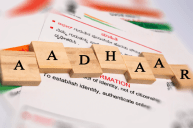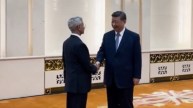On Monday, the Supreme Court directed the Centre to explore “informal channels” to save Kerala nurse Nimisha Priya, who is on death row in Yemen. This directive followed the Centre’s statement to the court that little could be done for her case. The SC bench of Justices Vikram Nath and Sandeep Mehta was hearing a petition filed by the ‘Save Nimisha Priya International Action Council’ seeking the Centre’s diplomatic intervention with Yemeni authorities to save her life. She is scheduled to be executed on July 16.
What The Centre Said
The Supreme Court bench, consisting of Justices Vikram Nath and Sandeep Mehta, was hearing a petition filed by the ‘Save Nimisha Priya International Action Council’. The petition urged the Indian government to step in and hold diplomatic talks with the Yemeni authorities to save Nimisha Priya’s life. She is currently facing execution in Yemen, scheduled for July 16. “There’s nothing much the government can do…looking at the sensitivity of Yemen…it’s not diplomatically recognised. Blood money is a private negotiation,” AG Venkataramani said. He also said that the Centre was doing all possible to get the execution suspended or deferred.
Responding to the Attorney General’s submissions, Justice Sandeep Mehta expressed concern over the nature of the incident and said it would be very sad if Nimisha Priya loses her life. The Attorney General assured the court that the Centre is making efforts to help and will continue trying to save its citizen. The Supreme Court scheduled the next hearing for July 18 and asked the government to explore informal channels of communication with Yemeni authorities. The bench also requested the Centre to update the court on what happens next and share any possible good news.
‘Diyat’ Option Under Sharia Law
Another ray of hope is on the ‘Diyat’ option under Sharia Law. Diyat is also known as Diyyah, is a concept in Islamic law (Sharia) that refers to financial compensation paid to the family of a victim in cases of murder, manslaughter, or bodily harm. It serves as a form of blood money, allowing the victim’s family to forgive the offender and potentially waive or reduce punishments like execution or imprisonment. Diyat could be an option if her family successfully negotiates with the victim’s family to accept compensation, potentially sparing her from execution.
The Save Nimisha Priya International Action Council has already raised $40,000 toward this, but negotiations have stalled due to the ongoing civil war and lack of direct communication with the victim’s family.
According to unverified reports, offers were made for the release of Nimisha Priya. It includes a $1 million bounty, free cerebral spinal surgery for five people nominated by Talal’s family, and a place for Talal’s brother to work and live in Saudi Arabia or the UAE. However, the family of the murdered Talal did not respond to these offers.
Nimisha’s Story
Nimisha Priya moved to Yemen in 2008 to support her family and opened a clinic in 2015 with Yemeni citizen Talal Abdo Mehdi as her sponsor. Their professional relationship deteriorated, with Priya accusing Mehdi of misappropriating clinic funds, confiscating her passport, and subjecting her to ongoing harassment and abuse. However, documents also said that Nimisha was married to Talal.
In 2017, attempting to retrieve her documents, including her passport and escape, she sedated Mehdi. It led to his death. Nimisha told the court she killed Talal by administering anaesthesia after he threatened her life, and with her colleague Hanan, dismembered and disposed of his body in a reservoir. After fleeing to another hospital 200 km away, she was arrested following a tip from hospital authorities and has been imprisoned in Sana’a since 2017. She was sentenced to death in 2020. The Save Nimisha Priya Action Council has since campaigned for her release, pursuing legal appeals and negotiating diyat (blood money) to seek a pardon from Mehdi’s family, as permitted under Yemeni law.












